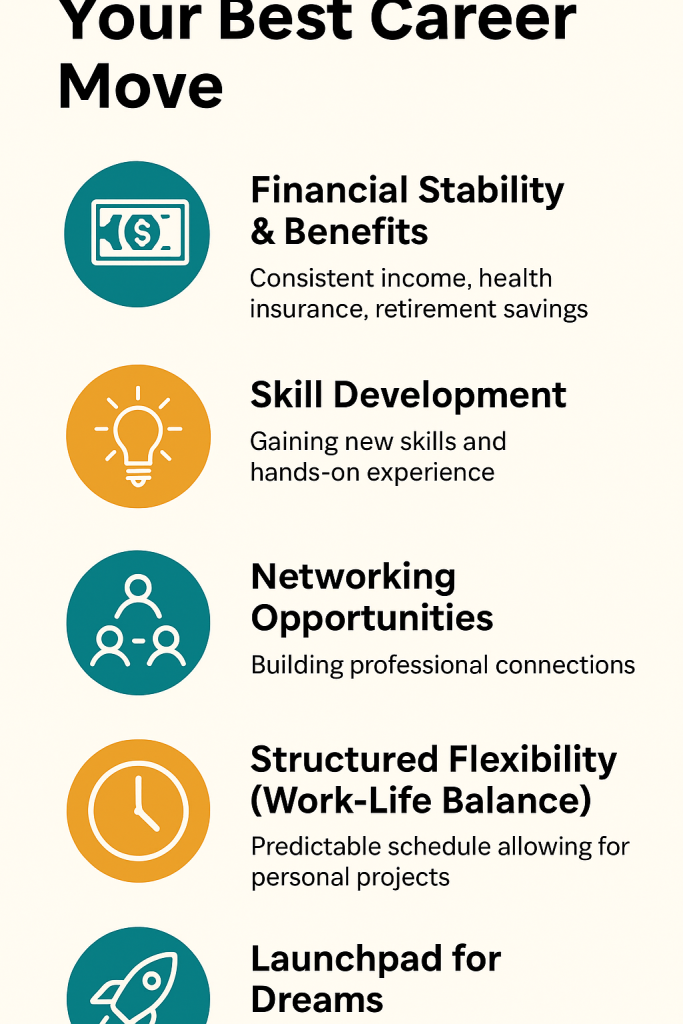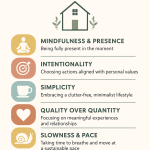The Stigma Around 9–5 Jobs
Scroll through social media and you’ll see it everywhere: the glorification of entrepreneurship and the demonization of 9–5 jobs. Phrases like “escape the rat race” or “fire your boss” flood our feeds, convincing us that working a regular job is a dead-end street.
But here’s the truth—9–5 jobs aren’t the villain they’ve been made out to be. In fact, the YouTube video “You’re Wrong About 9–5 Jobs” challenges this very narrative, reminding us that traditional employment can be a source of stability, growth, and even freedom.
Let’s unpack why rethinking the 9–5 could change your perspective on work, success, and happiness.
The Hidden Advantages of a 9–5 Job
It’s easy to take a paycheck for granted, but having a steady income is a powerful form of security. A 9–5 job provides:
- Financial stability: Bills get paid, food is on the table, and you can plan for the future.
- Health and retirement benefits: Many jobs include insurance, retirement savings, and paid time off—things freelancers often lack.
- Predictability: A structured schedule makes it easier to balance work, family, and personal projects.
Instead of seeing a 9–5 as a cage, think of it as a launchpad. The structure allows you to pursue other passions outside of work without the constant stress of survival.
Skill Growth: Your Job as a Classroom
Every workplace is a built-in training ground. Whether you’re learning technical skills, communication strategies, or leadership, your 9–5 is preparing you for bigger opportunities.
- You gain real-world experience that no online course can replicate.
- You build problem-solving skills by handling challenges on the job.
- You expand your professional network, which may open doors later in your career.
Many entrepreneurs who left traditional jobs successfully did so because of the knowledge, skills, and connections they gained while working for someone else.
The Mindset Shift: Using Your Job Instead of Resenting It
The problem isn’t the 9–5 job—it’s how we view it. If you approach your work with resentment, you’ll feel drained. But if you treat it as a stepping stone, everything changes.
Ways to shift your perspective:
- Set mini-goals: Aim to master a new skill every quarter.
- Inject creativity: Look for ways to innovate within your role.
- Leverage stability: Use your free time and steady income to fund side hustles, hobbies, or education.
Your job can be the fuel that powers your future dreams—if you choose to use it that way.
Funding Your Bigger Vision
One of the strongest arguments from the video is that 9–5 jobs can bankroll your ambitions.
- Want to start a business? Your salary funds the startup costs.
- Dream of traveling? Paid vacation makes it possible.
- Need breathing room? Steady paychecks reduce the pressure of “making it” overnight.
Instead of jumping blindly into entrepreneurship, many successful people used their jobs to test ideas safely, build savings, and minimize risks.
Community Voices: What People Really Think About 9–5s
Across online discussions, one theme emerges: people want meaningful work, but they also value stability.
As one Redditor put it:
“I think the key is to find things you like and then keep moving sideways and forward until there’s more and more good things about your job.”
This perspective shows that 9–5s don’t have to be traps—they can evolve with you if you’re intentional about growth.
Balancing Reality with Aspiration
Of course, not all 9–5 jobs are fulfilling. Some come with long commutes, toxic managers, or repetitive tasks. But rejecting them altogether can be short-sighted.
Instead, try this balanced approach:
- Assess what your job provides—skills, money, or experience.
- Adjust what you can—look for flexible schedules, remote options, or better roles within your field.
- Align with your goals—treat your job as a bridge, not a prison.
Conclusion: Redefining Success
The idea that 9–5 jobs are inherently bad is a myth. They are tools—and like any tool, their value depends on how you use them.
A 9–5 can give you financial security, opportunities to grow, and the foundation to build your bigger dreams. Whether you stay for decades or just a few years, the key is recognizing the freedom it can create rather than the limitations it imposes.
So next time you hear someone say, “Quit your 9–5 and chase your dreams,” remember—sometimes the smartest move is to embrace the job, leverage it, and let it carry you toward your goals.
Explore how building digital skills can amplify your 9–5 career in our post: Digital Marketing as a Career Choice
If you’re curious about the long-term impact of AI on future jobs and careers, check out this detailed guide from Nexford University.



